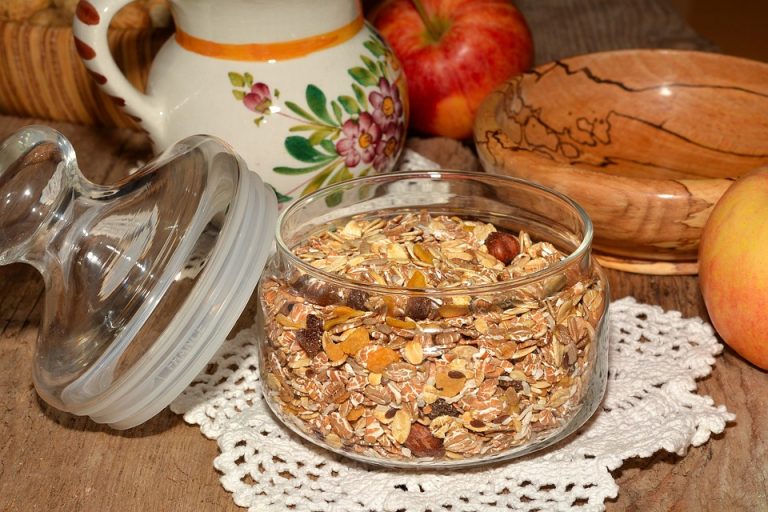7 Ways Berberine For Blood Sugar Lowers Glucose
Berberine for blood sugar is a natural compound that many people turn to when their glucose numbers won’t behave. It’s an alkaloid found in plants like Goldenseal and Berberis, and it matters because it acts on pathways your body already uses to control sugar. If you’re tired of spikes, fuzzy thinking after meals, or the fear that your fasting number will creep up again, this is one short, sharp conversation about what berberine can really do for your life.
Contents
- Why Berberine Matters To Your Body
- 1. Improves Insulin Sensitivity
- 2. Lowers Fasting Glucose And A1c
- 3. Reduces Post-Meal Glucose Spikes
- 4. Modulates Gut Microbiota
- 5. Reduces Liver Glucose Production
- 6. Lowers Inflammation And Oxidative Stress
- 7. Works Well With Other Lifestyle Changes
- Real People, Real Results
- What The Research Says
- Practical Tips To Get The Most From Berberine
- Bottom Line
- FAQ
- References
Why Berberine Matters To Your Body
Berberine doesn’t piddle around. It shows up where glucose is being decided — in your liver, your muscles, and your gut. Researchers have repeatedly found that berberine activates AMPK, a master switch for energy use that helps cells take up glucose and burn it rather than hoard it. That’s a functional change, not a cosmetic one.
Clinical studies and meta-analyses published on PubMed and reputable journals show consistent drops in fasting blood glucose and A1c with berberine. That’s the kind of evidence that turns curiosity into a tool you can actually use. If you want to reduce post-meal crashes, steady your fasting number, and help your insulin work smarter, berberine is worth understanding.
1. Improves Insulin Sensitivity
Insulin resistance is the stubborn landlord of high blood sugar. Berberine for blood sugar improves how insulin talks to your cells. By activating AMPK and affecting insulin receptor pathways, it helps muscles and fat cells respond to insulin’s command to absorb glucose.
That means less glucose circulating in your blood and fewer sugar swings. Multiple controlled trials show measurable improvements in insulin sensitivity after taking berberine, and patients report smoother energy and fewer cravings. If you’ve been told to lose weight to fix your sugars, berberine can help your body actually respond to those efforts.
How This Feels In Real Life
You’ll notice less mid-afternoon slump. You won’t need to chase chips after lunch. Your workouts feel more productive because your muscles use glucose more efficiently. Those are small, human wins that add up.
2. Lowers Fasting Glucose And A1c
If numbers make you nervous, this matters. Trials comparing berberine to standard diabetes medications often show similar reductions in fasting glucose and A1c. That’s not hyperbole — a string of randomized studies report consistent drops in these markers when berberine is taken daily.
Doctors take A1c seriously because it reflects long-term glucose control. When berberine lowers A1c, it means real metabolic adjustments, not just short-lived blips. If your provider is open to supplements as adjuncts, berberine can be a conversation starter backed by data.
3. Reduces Post-Meal Glucose Spikes
Spikes after meals wear you down. Berberine for blood sugar blunts those spikes by slowing carbohydrate digestion and improving peripheral uptake of sugar. That’s a two-pronged approach — your gut releases sugar more slowly, and your cells grab it faster.
Practically, that’s fewer mood swings after dinner and steadier energy between meals. For anyone who tests with a continuous glucose monitor, the difference can be visible and convincing. It’s one thing to read a study; it’s another to see a flatter glucose curve.
Diet Pairing Tip
Take berberine with food that contains carbs. It works with your meal to dampen the surge and support a calmer glucose response. Combine it with fiber and protein for more impact.
4. Modulates Gut Microbiota
Your gut is where a lot of glucose decisions start. Berberine for blood sugar reshapes the bacteria ecosystem in ways that favor metabolic health. Studies show shifts toward bacteria that support lower inflammation and better glucose handling.
That’s a big deal because the gut influences hunger, insulin sensitivity, and even how your liver stores fat. Think of the microbiome as a partner in glucose control — berberine nudges that partner to behave.
Small Action, Big Ripple
Even tiny changes in gut bacteria can change how you absorb and metabolize nutrients. That’s why some people notice improved digestion and steadier sugars after a few weeks.
5. Reduces Liver Glucose Production
Your liver is a glucose factory when it shouldn’t be. Berberine for blood sugar helps shut that factory down by reducing gluconeogenesis — the process that makes new glucose. Through AMPK activation and other molecular levers, berberine reduces the liver’s tendency to dump sugar into your bloodstream.
That’s particularly helpful for fasting glucose. If your morning number is stubborn, addressing the liver’s output is essential. Berberine hits that target without the harshness of some prescriptions.
6. Lowers Inflammation And Oxidative Stress
Chronic inflammation and oxidative stress make insulin resistance worse. Berberine calms inflammatory signaling and reduces oxidative markers in several studies. That’s not abstract: less inflammation helps cells listen to insulin again and reduces the long-term damage high glucose can cause.
For anyone worried about complications — neuropathy, retinopathy, and cardiovascular risk — lowering inflammation is a meaningful step. Berberine ties glucose control to tissue protection.
7. Works Well With Other Lifestyle Changes
Berberine for blood sugar is not a magic wand, but it amplifies the effects of sensible habits. When combined with exercise, a sensible diet, and improved sleep, berberine’s benefits multiply. It’s an amplifier, not a crutch.
Many studies that reported the best outcomes used berberine as an adjunct to lifestyle changes or alongside standard medication. That’s practical medicine: use tools together.
How To Use It Safely
Talk to your clinician before starting berberine, especially if you’re on diabetes medication. It can lower blood sugar and may interact with drugs metabolized by the liver. Typical doses in trials range from 500 mg two to three times daily, but individualized guidance matters.
Watch for gastrointestinal side effects early on — nausea, constipation, or mild cramping. Many people adjust timing or dose and find they tolerate it well. Pregnant or breastfeeding? Skip it until you’ve had a consult.
Real People, Real Results
I talk to women and men every day who want reliable, plain-spoken solutions. One teacher told me she felt less foggy by week two and was cutting her sugary snacks without thinking about it. A man in his 50s, working with his endocrinologist, used berberine to smooth stubborn fasting numbers and reduced his medication dose responsibly under supervision.
Those stories mirror what the literature shows: when used properly, berberine produces clinically meaningful improvements. The evidence stacked with human experience is persuasive because both point the same way.
What The Research Says
Meta-analyses and randomized trials reported on PubMed show that berberine produces significant reductions in fasting blood glucose and A1c comparable to some conventional medicines. Mechanistic research, published in peer-reviewed journals, describes AMPK activation, reduced hepatic gluconeogenesis, and shifts in the gut microbiome.
If you want to read directly, look for clinical trials and systematic reviews on PubMed and research summaries on university medical pages. Those sources carry the depth and balance you deserve. I encourage you to bring printouts to your next clinic visit — informed patients engage better care.
Practical Tips To Get The Most From Berberine
– Start low and go slow: begin with one 500 mg dose daily and increase as tolerated.
– Take with meals that contain carbohydrates for maximum post-meal benefit.
– Pair with fiber and lean protein to flatten glucose curves further.
– Monitor: home glucose testing or a CGM helps you and your clinician see real effects.
– Discuss drug interactions, especially if you take statins or diabetes medications.
These are simple, actionable items that respect your body and your clinician’s role.
Bottom Line
Berberine for blood sugar is a credible, evidence-supported tool that lowers glucose by improving insulin sensitivity, reducing liver glucose production, blunting post-meal spikes, and calming inflammation. It works best when paired with smart eating, movement, and medical oversight. If you want a practical, science-backed adjunct to help you stabilize glucose and feel better between meals, berberine deserves your attention.
Take the next step: talk to your healthcare provider, read the primary research, and decide if this fits your plan. You don’t need dramatic miracles — you need steady results. Berberine can help.
FAQ
Is berberine safe with my diabetes medicine?
Berberine can lower blood sugar, so you should check with your clinician before combining it with insulin or oral hypoglycemics. Your provider may need to adjust medication to prevent low blood sugar.
How long before I see results?
Some people notice changes in energy and cravings within a week; measurable drops in fasting glucose and A1c usually appear in a few weeks to a few months. Consistency matters.
Are there common side effects?
Gastrointestinal upset is the most common complaint. Starting at a low dose and taking it with food often reduces side effects. Serious interactions are rare but possible, so coordinate with your clinician.
Can I take berberine long term?
Many clinical trials used berberine for months, and some people use it longer under medical supervision. Regular monitoring and periodic reassessment are wise.
References
The PubMed article “Berberine Improves Glucose Metabolism” presents mechanistic and clinical data on glucose effects (https://pubmed.ncbi.nlm.nih.gov/18997073/).
WebMD provides an accessible overview of berberine, its uses, and safety considerations for patients (https://www.webmd.com/vitamins/ai/ingredientmono-1328/berberine).
The Cleveland Clinic explains the potential health effects and practical considerations for using berberine (https://health.clevelandclinic.org/berberine-what-it-does/).
The National Institutes of Health PubMed database hosts multiple clinical trials and reviews that detail berberine’s effects on diabetes and metabolism (https://pubmed.ncbi.nlm.nih.gov).
Bold steps are often the ones that change your life. If lowering glucose matters to you, read the research, talk to a clinician, and consider whether berberine fits into your plan.








